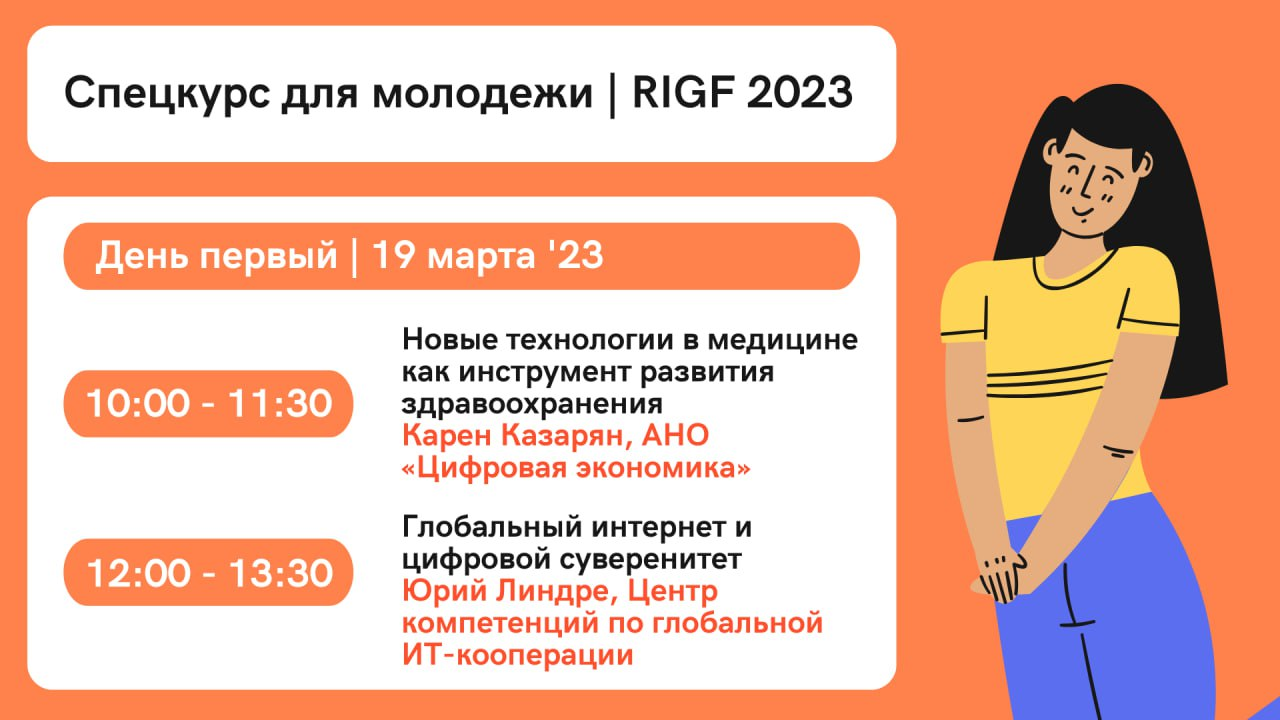
On March 19, a special course for young people started as part of the Russian Internet Governance Forum (RIGF 2023). This year, the most applications across the course's three years were received - 206 people from 10 countries decided to take part in it. The test task was completed by 131 people, of which 79 students of the special course were selected.
The professional spheres of participants, as in previous years, are diverse: they are lawyers, political scientists, sociologists, journalists, economists, representatives of IT specialties (directly involved in the development, administration and work with ICT) and humanities scholars who are not directly related to IT and the Internet (Orientalists, HR, PR and many others).
Opening the special course, Andrey Romanov, Deputy Director of the Coordination Center for TLD .RU/.РФ, spoke about how the foundation of the information society was laid, and about the concepts and principles of Internet governance.
The first lecture within the framework of the course was made by the director of analytics of the ANO "Digital Economy" Karen Kazaryan. He spoke about new technologies in medicine as a tool for the development of healthcare. Karen covered in detail the stages of digitalization of healthcare, the use of big data and predictive analytics in medicine, outlined the advantages of digitalization and regulatory barriers that prevent its spread in medicine.
The following have the greatest potential in healthcare over the next two to three years, according to a survey of audience members that was done during Karen Kazaryan's speech:
- Analysis of medical images (50%);
- Personal medicine (18%);
- Predictive analytics (13%);
- Robots (13%);
- AR/VR (6%)
Yury Lindre, a representative of the Center for Global IT-Cooperation, gave a second lecture on the topic “Global Internet and Digital Sovereignty”. He dwelled on the problems of digital sovereignty, Internetization trends, forms and trends of Internet fragmentation.
“The global e-commerce market has reached a record $26.7 trillion. The digital economy is growing not so much in parallel with the traditional one, but due to the gradual absorption and replacement of the latter. As a result, the states have a request to regulate the digital space,” he said.
Yuriy Lindre asked the course participants to answer the question “Do you think that digital platforms study and manipulate their users?”. Here are the results:
- 54% of respondents believe that the collection and analysis of user data is being carried out, but purposeful manipulation as a mass phenomenon is not observed;
- 38% are convinced that digital platforms analyze users only to improve recommender algorithms and services;
- 8% believe that digital platforms can study and manipulate their users, but this does not make sense, so this is a theoretical phenomenon.
The next two lectures will be held on March 26. Experts will talk about personnel for the digital economy and information security on the Internet. The program of the special course can be found on its page.



